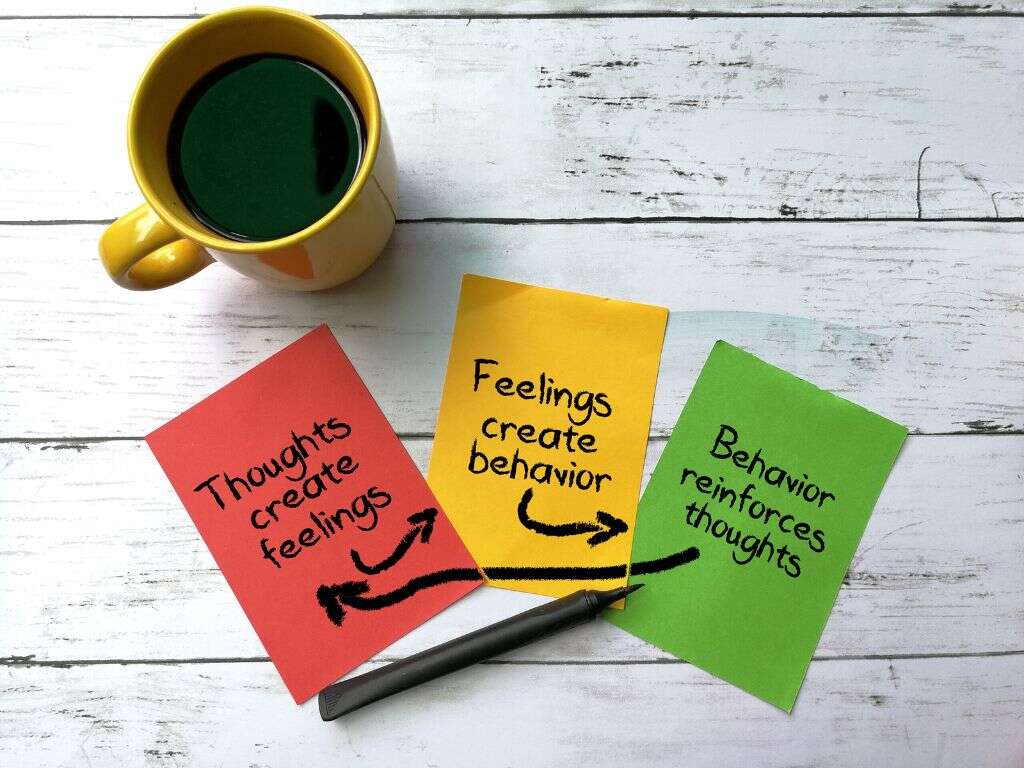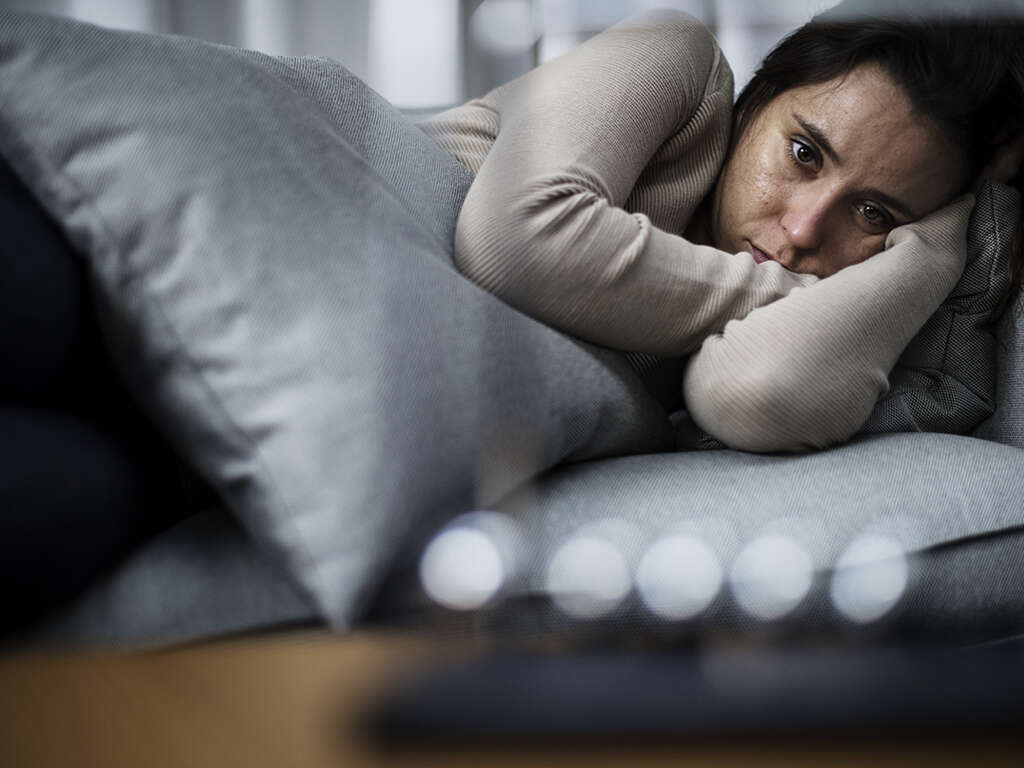What Is Chronic Stress?
Everyone experiences stress at different times, and a little bit can actually be healthy. Mild stress can be an effective motivator, and it can inspire enthusiasm and excitement.
Chronic stress is what happens when it becomes too much to handle in a healthy manner. It can not only affect your psychological well-being but can have some physical side effects as well. Learning to manage stress effectively is the key to keeping it from getting out of control.

1. Is Stress Normal?
Stress is a normal part of everyday life. Any change can bring a certain amount of stress with it. These changes often come from your environment. Stress can also be triggered by changes in your body or thought processes. Many people think of it as a reaction to negative stimuli, but even positive changes such as a new relationship or promotion can trigger a stress response.
The typical stress response is heightened alertness and awareness. In potentially dangerous situations, some people experience a fight-or-flight response. This is your body’s natural defense against things that you perceive to be harmful. Stress responses function to keep us alive and well.

2. When Does Stress Become Chronic?
After a situation that triggers a stress response is resolved, most people go into a state of relaxation. It is not healthy to remain hyper-vigilant all the time. Your body and mind have to have the chance to regroup and rejuvenate.
Stress becomes chronic when the relaxation phase doesn’t kick in. People who suffer from chronic stress remain in a state of constant alert with no reprieve. This causes tension to build, increasing cortisol in the body that never levels out. Over time, this tension can have drastic physical and psychological effects.

3. What Are the Signs of Chronic Stress?
Many people don’t know how to recognize the difference between normal, healthy levels of stress and a chronic problem. One possible reason for this is that they can look similar in the moment. The key difference to notice is how long the stress response lasts.
Another reason you may not recognize when your stress is starting to get out of control is that it can manifest in many different ways. You may think the headaches, increased fatigue or tendency to get sick is due to a strictly physical cause. Other signs of chronic stress include irritability, lack of focus, appetite changes, nervousness, low self-esteem, decreased sexual desire and a sense of helplessness. Any of these things can be an indication that your stress levels are overwhelming.

4. What Are the Physical Effects of Chronic Stress?
A common side effect of chronic stress is an overtaxed immune system. You may notice that you get colds more frequently. You may develop a rash or other skin irritations as your body reacts to the hormone imbalance caused by unusual cortisol levels.
Ongoing stress can also affect your body’s basic functions. The inability to relax between stressors can lead to high blood pressure and increase your chance of heart disease. It can also affect respiratory function, cause gastrointestinal problems or lead to chronic sexual dysfunction.

5. What Are the Psychological Effects of Chronic Stress?
If you experience chronic stress, you may also suffer from insomnia. When your mind can’t slow down, it makes sense that it’s harder to get to sleep. If your busy schedule or a tedious job is the source of your stress, you may also experience burnout.
If left unchecked, chronic stress can lead to more serious psychological issues. Depression and anxiety are common diagnoses for people whose stress management is out of control. It can also register as a trauma, causing PTSD. Some people even develop schizophrenia.

6. Who Is More Likely to Develop Chronic Stress?
Not everyone reacts to stress the same. Some people seem to be able to handle anything that comes their way with ease. Others struggle to cope with even small changes. There are several factors that may explain this difference.
Those who live in a state of uncertainty, such as in a lower socioeconomic status or with a chronic health problem, are more likely to develop chronic stress. People with a negative outlook on life or themselves tend to be more vulnerable to the effects of change. Finally, those who have little to no experience with healthy coping skills are likely to have more intense and lasting reactions to stressors.

7. Is Chronic Stress a Reason to See Your Doctor?
You may not think that chronic stress is a reason to make an appointment with your general practitioner, especially if you are not experiencing any symptoms of physical illness. Your doctor can be helpful when dealing with chronic stress, though.
It’s not a good idea to try to deal with stress on your own. Your doctor may be able to recommend practical solutions. You may get a referral to a specialist such as a psychologist who can help you work through your coping mechanisms.

8. What Are the Treatment Options for Chronic Stress?
The first step to dealing with chronic stress effectively is recognizing it as a problem. One of the main reasons stress gets out of control is because people assume it’s a normal part of life that will eventually go away on its own. Chronic issues often require professional intervention, though.
Your psychologist may try cognitive behavioral therapy. This is a common treatment method for anxiety and may also be helpful in moderating stress responses. It involves learning to recognize triggers and making a plan for responding to them in an effective and productive way.

9. How Do You Manage Stress Effectively?
The first step to resolving any problem is acknowledging it. Notice what stressors tend to send you into prolonged heightened alertness. When these events occur, have a plan in mind for reducing your reaction. Options include reaching out to people in your social support system, meditating or going for a walk.
It is also important to have a regular self-care regimen. Don’t wait until you feel stressed to exercise; make it part of your daily routine. Adjust your habits to ensure that you are getting proper rest. Lower your caffeine intake and develop a bedtime routine that helps you fall asleep more easily. Good habits can prevent or lessen the more extreme effects of stress.

10. Can You Prevent Stress Altogether?
Minor stress is not a cause for alarm. In fact, it’s a normal part of life, and a small amount can even be healthy. There’s no need to worry about eliminating every possible stressor from your experience.
Stress is only a problem when it becomes unmanageable, so it’s vital to your overall well-being to keep it in check. Develop good stress relief habits, and don’t be afraid to ask for help when you need it.












